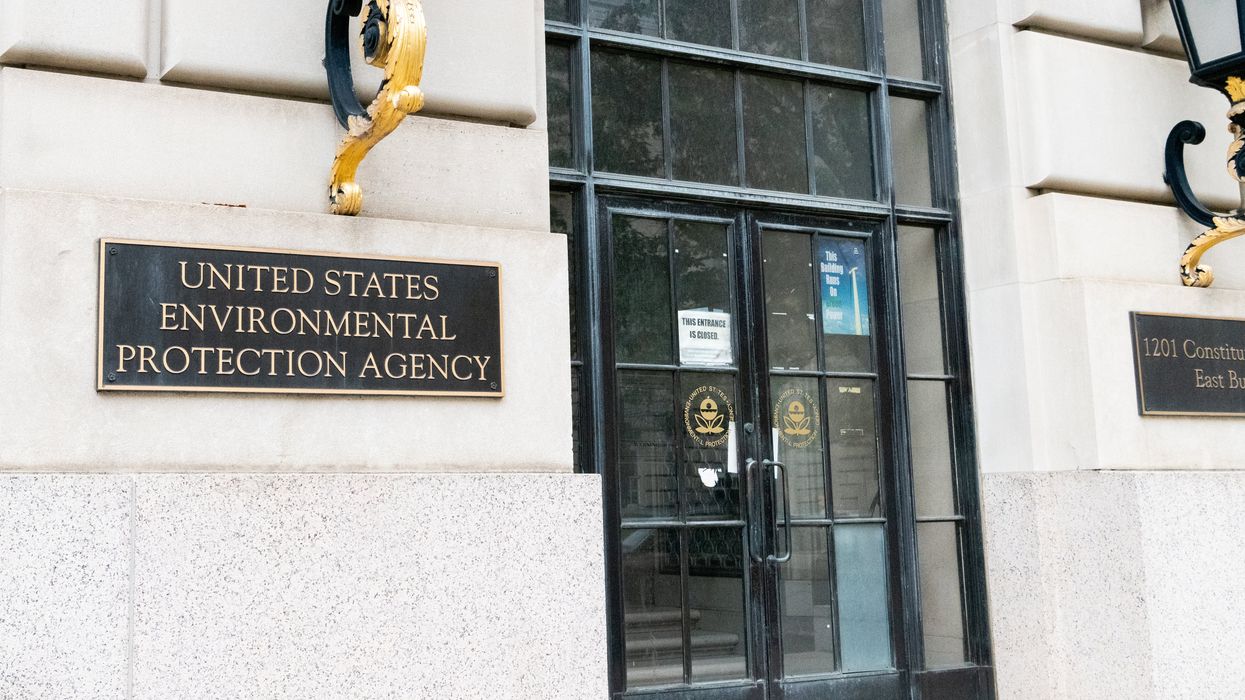Shapiro, a freelance journalist, was a newspaper editor for 30 years in California, Illinois and Iowa, including 21 years as executive editor of the Waterloo-Cedar Falls Courier.
This is part of a series offering a nonpartisan counter to Project 2025, a conservative guideline to reforming government and policymaking during the first 180 days of a second Trump administration. The Fulcrum's "Cross-Partisan Project 2025" relies on unbiased critical thinking, reexamines outdated assumptions, and uses reason, scientific evidence, and data in analyzing and critiquing Project 2025
No matter if you’re a bleeding-heart woke liberal or a conservative anti-vaxxer, you want the water you ingest to do no harm.
The average human is 60 percent water, although men are more waterlogged than women and infants have more, seniors have less. Your heart and lungs are 75 percent to 80 percent H20. But much of that water is contaminated.
Environmental Protection Agency data indicate that at least 56 percent of Americans drink from water systems with lead levels detected.
The EPA contends: “A dose of lead that would have little effect on an adult can have a significant effect on a child. In children, low levels of exposure have been linked to damage to the central and peripheral nervous system, learning disabilities, shorter stature, impaired hearing, and impaired formation and function of blood cells.”
Then there are the toxic “forever” chemicals known as PFAS (per- and polyfluoroalkyl substances). According to a study published by the Environmental Working Group, 200 million Americans have been exposed to tap water containing them.
The Centers for Disease Control and Prevention cites studies linking PFAS to kidney and testicular cancer, lower antibody response to vaccines, changes in liver enzymes, high cholesterol rates, and pregnancy-related problems, including low fertility and decreased birth weights.
Project 2025’s conservative playbook — developed by the Charles Koch-funded Heritage Foundation — pays homage to the founding of the Environmental Protection Agency during the Nixon administration and cites the necessity of the Clean Water and Safe Drinking Water acts.
It also acknowledges that the Clean Water Act is underfunded and that “water infrastructure is crumbling” in certain areas. Yet it ignored President Joe Biden’s infrastructure proposal, which included provisions to replace all lead water pipelines by spending $45 billion. Congressional negotiators reduced it to $15 billion.
Instead, Project 2025 contends “the primary role in making choices about the environment belongs to the people who live it” — state governments.
So let’s consider some initiatives Republicans are taking.
The EPA wants to order the replacement of 9 million lead water lines — mostly found in low-income areas — within 10 years. But 15 Republican state attorneys general are trying to block that effort, claiming it’s an infringement on states’ rights: “It’s unworkable, underfunded, and unnecessary.” Private homeowners, they maintain, would “bear the brunt of the costs.”
Had the GOP not cut the Biden infrastructure allocation, their argument would be moot.
Earlier this month, after a U.S. Geological Survey found PFAS could be contaminating 45 percent of the nation’s tap water, the EPA announced new standards down from 70 parts per trillion to 4 ppt.
PFAS are a part of the Manhattan Project legacy. Scientists creating the atomic bomb made the ultimate coolant — needed to separate uranium — by bonding carbon and fluorine atoms, building on DuPont’s pioneering refrigerant efforts in 1938.
After the war, PFAS synthetic chemicals became ubiquitous — in coolants, fire retardants, repelling grease and grime, waterproofing and carpeting. 3M, which hired Manhattan Project chemists, used them in Scotchgard; DuPont in Teflon.
Internal memos indicate both 3M and DuPont knew about the toxicity of PFAS in the 1960s. The law caught up with them last year.
3M reached a $10.3 billion settlement (without an admission of liability) amid 4,000 lawsuits filed by states and municipalities. DuPont, Chemours (a DuPont spinoff) and Corteva (a DowDuPont spinoff) agreed to pay $1.9 billion.
A 2023 study published in Exposure & Health put the cost of treating PFAS-related diseases at $62.6 billion.
Yet the Republican-controlled Wisconsin Legislature has refused to release $125 million to clean up PFAS in drinking water until 3M and DuPont get immunity.
Environmental Science & Technology reported that Brunswick County, N.C, along the Atlantic coast in the Cape Fear River watershed, has spent $99 million on a reverse osmosis plant and will incur $2.9 million annually in operations because of PFAS discharges upriver from Chemours’ Fayetteville plant.
When Consumer Reports tested drinking water in 120 locales two years ago, the highest PFAS contamination was in a North Carolina church. The state’s drinking water ranks third in the nation in the discharge of 1,4-dioxane, an industrial solvent.
But the Republican supermajority in the Legislature, which wrested control of the Environmental Management Commission from Gov. Roy Cooper, a Democrat, has resisted enacting enforceable water quality standards.
According to the Raleigh News & Observer, Republicans are “stalling efforts to regulate chemicals that have contaminated North Carolina drinking water supplies, including forever chemicals and an industrial solvent that is a likely human carcinogen.”
Project 2025’s clean water agenda? Recall the admonition of Nixon’s attorney general, John Mitchell: “Watch what we do, not what we say.”
More articles about Project 2025
- A cross-partisan approach
- An Introduction
- Rumors of Project 2025’s Demise are Greatly Exaggerated
- Department of Education
- Managing the bureaucracy
- Department of Defense
- Department of Energy
- The Environmental Protection Agency
- Education Savings Accounts
- Department of Veterans Affairs
- The Department of Homeland Security
- U.S. Agency for International Development
- Affirmative action
- A federal Parents' Bill of Rights
- Department of Labor
- Intelligence community
- Department of State
- Department of the Interior
- Federal Communications Commission
- A perspective from Europe
- Department of Health and Human Services
- Voting Rights Act
- Another look at the Federal Communications Commission




















Trump & Hegseth gave Mark Kelly a huge 2028 gift